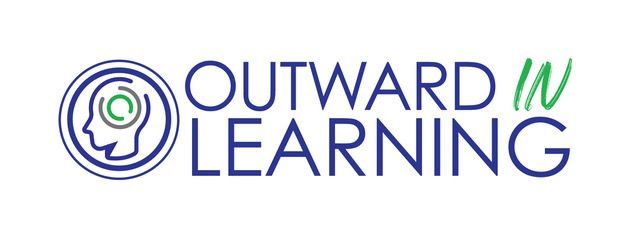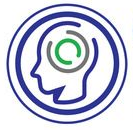
College: A Roadmap to Success or a Path of Uncertainty?

Student success is a key focus in higher education, especially for new first-year students, and rightfully so. With high college tuition, an ever-changing workforce, and the national student debt at $1.6 trillion, many are questioning if the risk of earning a college degree is worth it.
The increasing variety of degree programs, certifications, and workforce trends can overwhelm high school seniors. Upon graduating, many face the question of “What's next?” This uncertainty often leads to confusion as they start college without a clear major or career path. Although, it's not imperative for students to have a specific career selected as they enter college, career exploration (and development) should be prioritized along with their general education courses. Without a some sort of career minded direction or mindset, the initial feelings of confidence and motivation diminish, affecting academic performance and ultimately hindering their focus on the long-term goal of graduation.
College is important for gaining independence and requires present sacrifices for a more secure future. For high school students, this choice entails financial, social, and emotional considerations. Committing to attend college is important; it often means gaining independence and making sacrifices today for a more secure future. For high school students, this decision involves financial, social, and emotional sacrifices, along with a time commitment of 4 to 6 years for a Bachelor's degree. Uncertainty may lead students to take a gap year or start college undecided, focusing only on general education. While neither option is bad, having a clear direction and a plan can boost students' motivation and excitement about their degrees, regardless of whether they take time off.
I encourage students to explore their career interests, personal strengths, and work values. It's normal to feel unsure about a major when starting college and to enter "undecided". By actively researching potential careers, students can identify a suitable major and understand its opportunities. Many choose a major they later find doesn't align with their true goals, leading to wasted time, credits, and money. This can create anxiety and confusion for students seeking direction after high school, making them question their commitment and the value of college. The idea of spending 4-6 years in school and incurring debt may not seem worth the effort to earn a college degree.
Most students attend college to achieve a return on investment (ROI). They want to know if college helps improve their chances of economic stability and job security as they start their careers. What most students seek when they attend college is a return on investment or (ROI). In today’s occupational landscape, more “blue collar” jobs (carpentry, construction, plumbing, automotive technicians, etc.) are available which also provide competitive salaries that may require occupational training and not a degree. Students face a difficult decision upon graduating from high school.
The high cost of tuition and student loan debt make college daunting for many high school graduates (and parents). Many choose to attend college without knowing their desired major or career path. I experienced this myself when I switched my major from physical therapy to criminal justice. I entered the field because I enjoyed physical fitness and working out. However, I soon realized that I am not strong in the sciences and wanted to help people, so I quickly realized that a career in physical therapy was not in my future. So many students choose a major based on a fleeting interest rather than thorough research and self-reflection. It’s important for students to investigate whether their chosen path aligns with their "true" future aspirations. While a college degree does not guarantee success or higher wages, acquiring a degree can create job opportunities which lead to better long-term employability and earnings.
According to the Bureau of Labor Statistics, education pays; the higher the degree of attainment, the higher the wages—from high school all the way to a Doctoral or Professional degree. Higher education also has lower unemployment rates and increased overall job satisfaction. However, there are no guarantees of degree attainment and what exactly that would look like in the future. At least when students apply to college, they can see the value a college degree holds and how this can influence their career and economic future.
Integrating student orientation and career development can greatly benefit new students. Implementing career development resources during the transition to college (11-12th grade) provides guidance, direction, and a sense of purpose as they start their college journey.
Higher education and career development programs can help students start thinking immediately about what the next steps are after college by selecting a major and career based on their abilities, interests, and strengths. However, the responsibility does not fall directly on the colleges or high schools alone. The responsibility is also with the graduating student. The student should be actively seeking and exploring what their career interests are, work values, educational requirements, and areas of growth in that career. It provides a foundation for their college and career future with direction and purpose. Students should enter college with a clearer understanding of their intrinsic abilities and career aspirations as they pertain to their major and potential career.
Outward In Learning provides a career discovery program to help students seek their ideal career.
Feel free to contact me to learn more!
Darryl Williams
darryl@outwardinlearning.com
Call or text - 484-925-1656
The increasing variety of degree programs, certifications, and workforce trends can overwhelm high school seniors. Upon graduating, many face the question of “What's next?” This uncertainty often leads to confusion as they start college without a clear major or career path. Although, it's not imperative for students to have a specific career selected as they enter college, career exploration (and development) should be prioritized along with their general education courses. Without a some sort of career minded direction or mindset, the initial feelings of confidence and motivation diminish, affecting academic performance and ultimately hindering their focus on the long-term goal of graduation.
College is important for gaining independence and requires present sacrifices for a more secure future. For high school students, this choice entails financial, social, and emotional considerations. Committing to attend college is important; it often means gaining independence and making sacrifices today for a more secure future. For high school students, this decision involves financial, social, and emotional sacrifices, along with a time commitment of 4 to 6 years for a Bachelor's degree. Uncertainty may lead students to take a gap year or start college undecided, focusing only on general education. While neither option is bad, having a clear direction and a plan can boost students' motivation and excitement about their degrees, regardless of whether they take time off.
I encourage students to explore their career interests, personal strengths, and work values. It's normal to feel unsure about a major when starting college and to enter "undecided". By actively researching potential careers, students can identify a suitable major and understand its opportunities. Many choose a major they later find doesn't align with their true goals, leading to wasted time, credits, and money. This can create anxiety and confusion for students seeking direction after high school, making them question their commitment and the value of college. The idea of spending 4-6 years in school and incurring debt may not seem worth the effort to earn a college degree.
Most students attend college to achieve a return on investment (ROI). They want to know if college helps improve their chances of economic stability and job security as they start their careers. What most students seek when they attend college is a return on investment or (ROI). In today’s occupational landscape, more “blue collar” jobs (carpentry, construction, plumbing, automotive technicians, etc.) are available which also provide competitive salaries that may require occupational training and not a degree. Students face a difficult decision upon graduating from high school.
The high cost of tuition and student loan debt make college daunting for many high school graduates (and parents). Many choose to attend college without knowing their desired major or career path. I experienced this myself when I switched my major from physical therapy to criminal justice. I entered the field because I enjoyed physical fitness and working out. However, I soon realized that I am not strong in the sciences and wanted to help people, so I quickly realized that a career in physical therapy was not in my future. So many students choose a major based on a fleeting interest rather than thorough research and self-reflection. It’s important for students to investigate whether their chosen path aligns with their "true" future aspirations. While a college degree does not guarantee success or higher wages, acquiring a degree can create job opportunities which lead to better long-term employability and earnings.
According to the Bureau of Labor Statistics, education pays; the higher the degree of attainment, the higher the wages—from high school all the way to a Doctoral or Professional degree. Higher education also has lower unemployment rates and increased overall job satisfaction. However, there are no guarantees of degree attainment and what exactly that would look like in the future. At least when students apply to college, they can see the value a college degree holds and how this can influence their career and economic future.
Integrating student orientation and career development can greatly benefit new students. Implementing career development resources during the transition to college (11-12th grade) provides guidance, direction, and a sense of purpose as they start their college journey.
Higher education and career development programs can help students start thinking immediately about what the next steps are after college by selecting a major and career based on their abilities, interests, and strengths. However, the responsibility does not fall directly on the colleges or high schools alone. The responsibility is also with the graduating student. The student should be actively seeking and exploring what their career interests are, work values, educational requirements, and areas of growth in that career. It provides a foundation for their college and career future with direction and purpose. Students should enter college with a clearer understanding of their intrinsic abilities and career aspirations as they pertain to their major and potential career.
Outward In Learning provides a career discovery program to help students seek their ideal career.
Feel free to contact me to learn more!
Darryl Williams
darryl@outwardinlearning.com
Call or text - 484-925-1656

An online educational platform that helps students strive to their highest academic potential in pursuit of their college goals.
Connect with us
Getting to School Is a Battle: What to Do Now if Your Teen Is Facing a Big Transition
Start Learning Today!
Copyright © 2022

